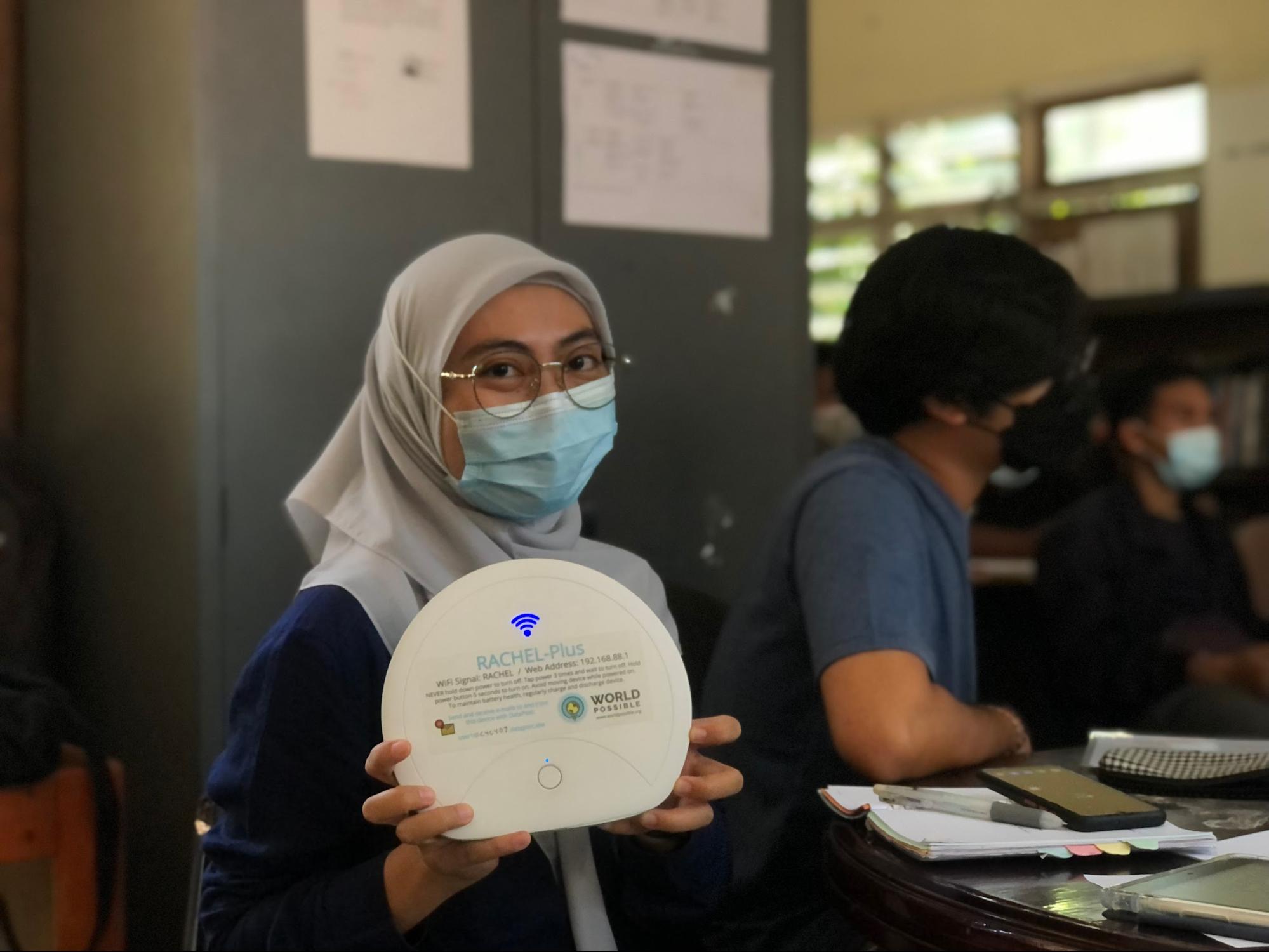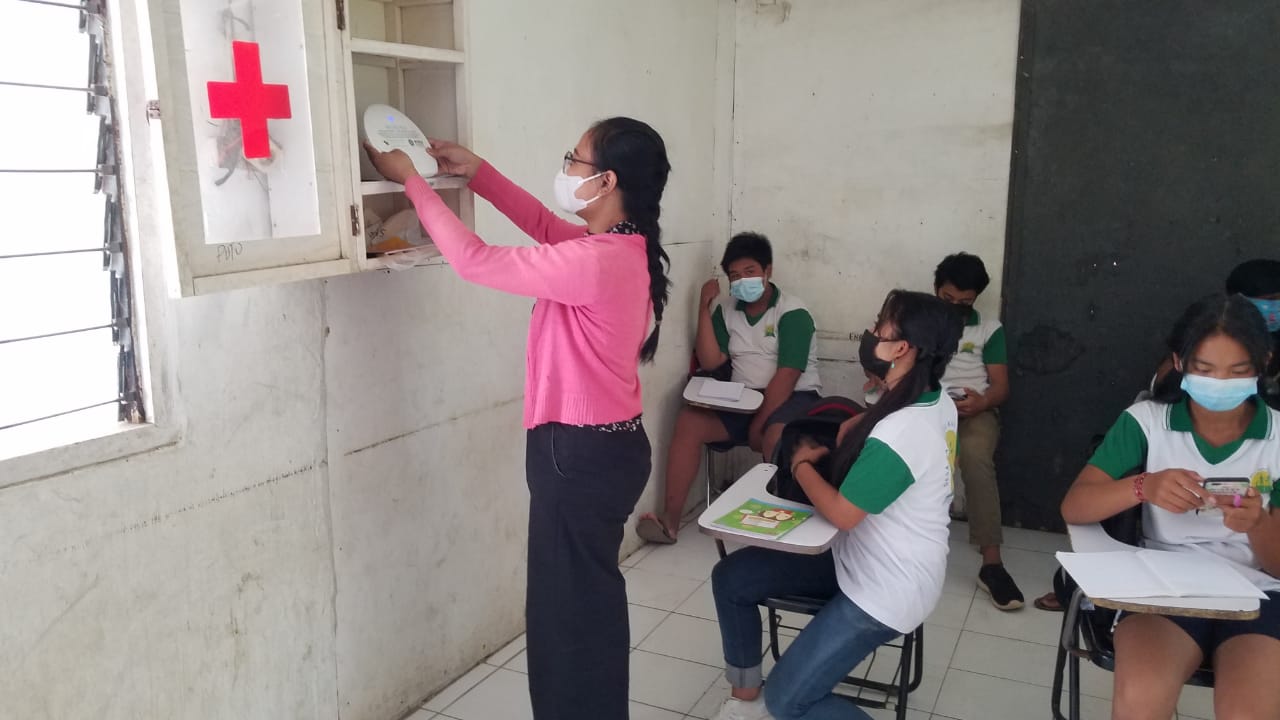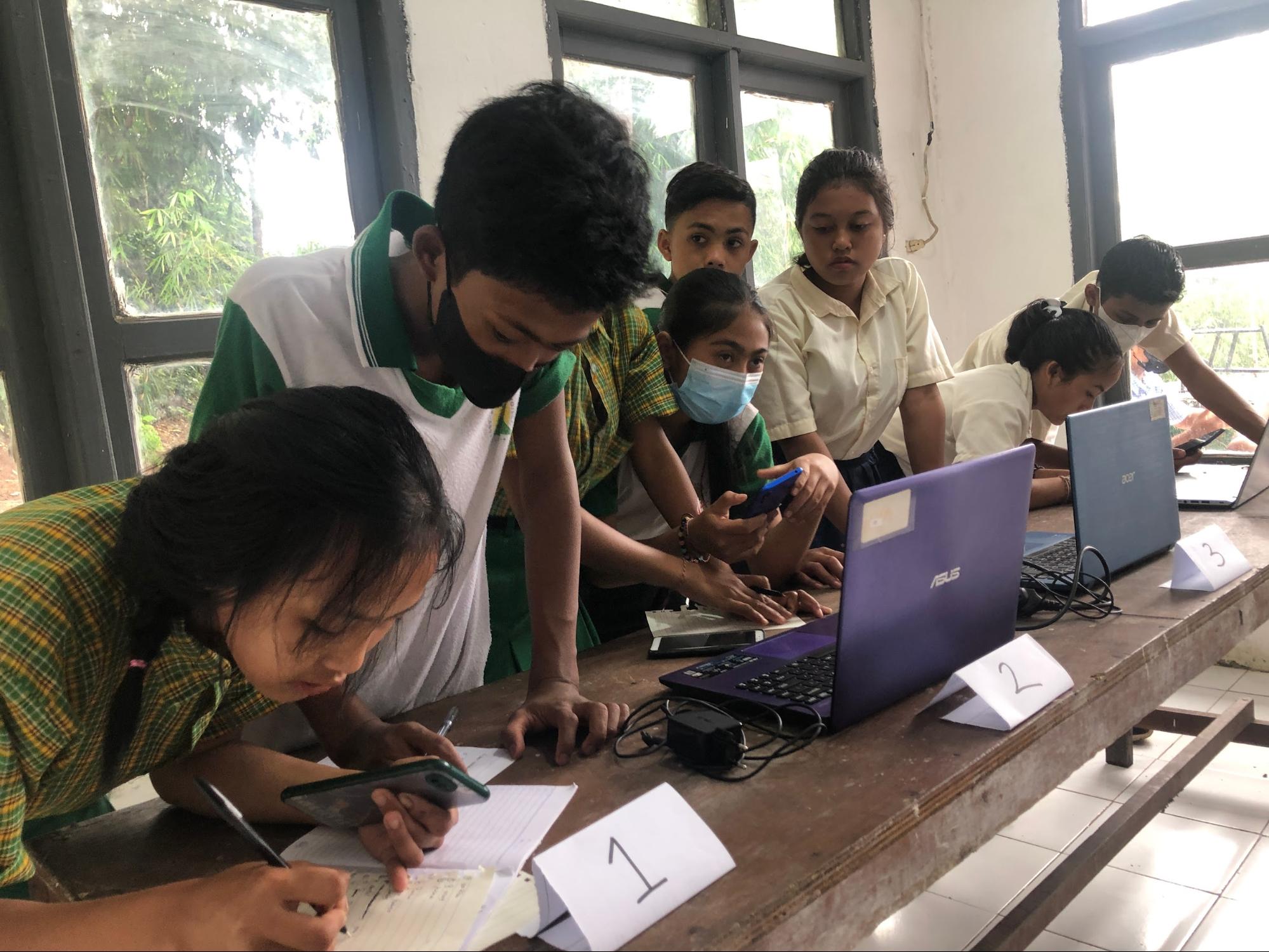The pandemic forced schools to close and shift learning online, leaving many students - especially those located in remote areas struggling to continue to learn. In Ban Village, Karangasem Regency, Bali students had to climb up high - onto trees or rooftops to be able to access the internet and obtain their learning materials online.
The pandemic has brought significant changes to the education system worldwide. Many Asian countries turned to platforms such as television, social media, and government-made platforms to support online learning. However, the implementation of online learning in Indonesia is hindered by several issues, including a lack of digital literacy among teachers and poor internet infrastructure. This highlights the need for interventions that can help students in rural areas, such as Ban Village, excel using online learning.
Students and teachers in Ban Village find online learning and studying from home to be challenging. The village is one of the most remote in Bali with poor road access and limited internet connection. When students study independently at home, many struggle to focus due having to assist their parents with household tasks leading to preference for work over study, and missing out on the long-term benefits of formal education.
Teachers in Ban Village also face similar challenges with online learning. With limited internet access, they primarily use WhatsApp as a teaching platform to send learning materials and monitor students' progress. However, this method of monitoring was not effective, leading them to needing to visit students' homes to check on their progress.
Kopernik in collaboration with the East Bali Poverty Project tested the RACHEL (Remote Area Community Hotspot for Education and Learning) device to support access to education in Ban Village. Developed by World Possible, RACHEL is a portable, battery-powered device that functions as a router to transmit signals and stores educational materials that can be accessed without an internet connection. The materials contained in RACHEL can be easily connected to nearby laptops, smartphones, and tablets.
 RACHEL device can store and share learning materials to nearby devices without internet connection.
RACHEL device can store and share learning materials to nearby devices without internet connection.
RACHEL materials were translated to Bahasa Indonesia and aligned with the Indonesian education curriculum. Additional learning materials from other platforms were also included, such as interactive learning materials from Inibudiand materials provided by local teachers. The device was positively received by teachers and students, with 12 out of 13 teachers interviewed stating they would incorporate RACHEL in their teaching activities.
There were challenges in implementing this technology - a strong earthquake hit Bali a few weeks before implementation and testing of the RACHEL device, damaging schools in the village and halting all learning activities. In early 2022, as the number of COVID-19 cases decreased and restrictions on community activities were lifted, schools in Indonesia gradually returned to face-to-face, offline classroom settings, including in Ban Village. As a result, the implementation plan for the RACHEL device was adjusted to an offline setting, where it would be tested to support regular classroom activities at school.
There were also technical challenges during the implementation of RACHEL in an offline classroom setting, such as difficulty in updating learning materials regularly and teachers forgetting their login details. Additionally, certain subjects, such as physical education (PE) or art classes, are not compatible with the RACHEL device.
Despite these challenges, RACHEL was positively received, particularly by the students, who were more engaged and enthusiastic about learning using the materials available on the device. Students even accessed RACHEL outside of class hours to watch English content videos or videos produced by Inibudi.
 The use of RACHEL in the classroom
The use of RACHEL in the classroom
After a few months of implementing RACHEL in a classroom setting, usage of the device began to decline. To address this, the Kopernik team organized an interactive session with teachers and students to encourage them to use RACHEL more frequently.
 Students participating in fun activities by Kopernik to reinforce the use of RACHEL.
Students participating in fun activities by Kopernik to reinforce the use of RACHEL.
New technologies will never be a fix-all for educational access challenges. They can however be complementary if used optimally. In the context of the implementation of RACHEL in Ban Village, insufficient planning, training and preparation due to the return to offline learning was a factor resulting in suboptimal adoption.
Teachers are the most critical component in the successful implementation of RACHEL, and their decision whether to use the device in the classroom greatly influences the students' decision to do the same. The introduction of education technology in rural areas also requires significant support from the government, through infrastructure and capacity building.
When all necessary supporting factors and environments are in place, education technology can improve students' engagement and provide a more diverse teaching experience. With RACHEL and other educational technologies, we are moving towards an education system that extends beyond the classroom walls, hopefully without the need to climb trees or roofs.


